Για να ξεπεράσουμε την πρόκληση, πρέπει να κάνουμε πρωτοφανή πράγματα για να δημιουργήσουμε μια διαφορετική δομή ανάπτυξης, και αυτή είναι μια ευκαιρία τόσο για την κυβέρνηση όσο και για τις επιχειρήσεις.
Recently, I met some businessmen and leaders of Ben Tre province, the locality most severely affected by climate change in Vietnam. They said that businesses in Ben Tre are facing unprecedented challenges and difficulties due to rising sea levels. The whole province has many rivers, little fresh water, rising sea levels cause saltwater to intrude everywhere. Businesses and people cannot do business, even drinking water is lacking and they do not know how to escape this situation. I told them that to solve this problem, we need to have a reverse mindset and there is only one way, which is to turn challenges into opportunities. The government needs to be aware of the challenges and create opportunities for businesses; and businesses need to respond and take advantage of those opportunities to overcome this adversity. Ben Tre's lack of fresh water is a challenge, if anyone knows how to create fresh water, the challenge will become an opportunity. They have the opportunity to dig wells and raise aquatic species different from traditional ones to adapt to saltwater intrusion. Such reverse thinking implies that, to overcome challenges, we must do unprecedented things to create a different development structure, and this is an opportunity for both the government and businesses. Κοιτώντας το ευρύτερα, οι προκλήσεις της χώρας μας μπορούν επίσης να μετατραπούν σε ευκαιρίες ανάπτυξης. Το σημαντικό είναι να γνωρίζουμε πώς να δημιουργούμε τις σωστές πολιτικές, έτσι ώστε οι δυσκολίες και οι προκλήσεις να μπορούν να γίνουν κινητήριες δυνάμεις και ευκαιρίες ανάπτυξης. Αν κοιτάμε τις προκλήσεις απλώς για να παραπονιόμαστε και να γκρινιάζουμε, δεν θα ξεπεράσουμε ποτέ τις αντιξοότητες. Η αντίστροφη σκέψη, η μετατροπή των προκλήσεων σε ευκαιρίες, γίνεται πηγή έμπνευσης για ανάπτυξη και κερδίζει συναίνεση σε πολλά μέρη. Το Κουάνγκ Νιν είναι ένα ζωντανό παράδειγμα. Αυτή η επαρχία είχε προηγουμένως υπανάπτυκτες υποδομές. Τα ταξίδια και το εμπόριο με γειτονικές επαρχίες και περιοχές ήταν πολύ δύσκολα. 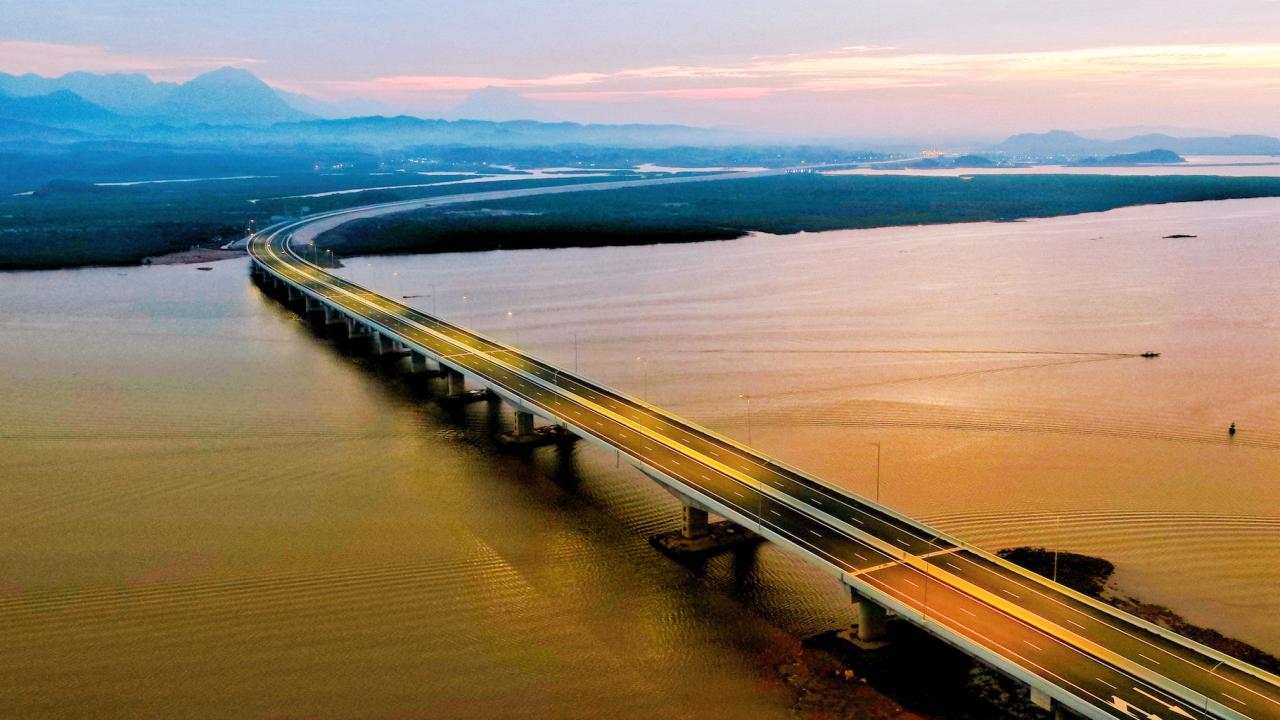

Είναι απαραίτητο να δημιουργηθεί περισσότερος χώρος για την ανάπτυξη του ιδιωτικού επιχειρηματικού τομέα. Φωτογραφία-εικονογράφηση: Hoang Ha
To solve that challenge, Quang Ninh invited private enterprises to build Van Don airport and expressway. Van Don airport, the expressway from Ha Long to Mong Cai, the Ha Long - Hai Phong expressway connecting with Hai Phong - Hanoi expressway have helped Quang Ninh become the most convenient province for domestic and international trade in Vietnam. Weaknesses in infrastructure have been resolved. Unfortunately, Van Don airport is not yet connected to the international market. Quang Ninh has developed good infrastructure but does not have a synchronous structure. The international airport should be connected to the international market. This blockage prevents the tourism market from developing in line with the infrastructure. Thus, this bottleneck needs to be cleared, creating opportunities for Quang Ninh to connect with the international market. Open space for the private sector Looking at the broader picture, the whole country is about to be cleared when the North - South expressway and the coastal route are about to be completed in a few years. Moreover, Vietnamese enterprises participated in building these routes, not foreign investors. Our roads and money were given to Vietnamese enterprises to improve their financial and technical capacity. The infrastructure bottleneck, which used to be the biggest challenge, has now become an opportunity for development, in which Vietnamese enterprises are given the opportunity. This move is much more encouraging than giving opportunities to foreign enterprises to invest. With such thinking and working methods, Vietnam has built many of the longest and fastest highways, something unprecedented in the country's history. From the perspective of connecting roads, we need an information highway for digital transformation, big data... We also need to accept the challenge of green transformation, green economy , circular economy, carbon market as opportunities. The changing infrastructure of the economy will create many opportunities if we know how to take advantage. However, the State is still taking on too much, for example in the construction of the North-South Expressway, and is not in accordance with the TPP Law which encourages private investment. The State should create mechanisms and policies to encourage private enterprises to invest rather than the State doing it. In the market structure, the State still holds too much compared to the private enterprise sector. Up to now, only 8% of capital in the State enterprise sector has been equitized. Αυτό δεν λύνει το πρόβλημα της οικονομικής δομής και αποτελεσματικότητας παρά τις πολλές πολιτικές και κατευθυντήριες γραμμές. Εάν η μετοχοποίηση είναι πολύ αργή, θα είναι πολύ δύσκολο για την οικονομία να μετασχηματιστεί και να λειτουργήσει πιο αποτελεσματικά. Ο ιδιωτικός τομέας αναλαμβάνει τα εθνικά περιουσιακά στοιχεία από τις κρατικές επιχειρήσεις, διαχειρίζεται καλύτερα και αποφέρει περισσότερα οφέλη από αυτά τα περιουσιακά στοιχεία, όχι μόνο το κράτος θα εισπράττει περισσότερους φόρους, αλλά η χώρα θα έχει περισσότερα συνολικά οφέλη. Επιπλέον, εάν το κράτος πουλήσει μετοχές σε κρατικές επιχειρήσεις, θα έχει χρήματα για να κάνει πολλά άλλα πράγματα καλύτερα και πιο αποτελεσματικά. Αυτή η άποψη έχει συμφωνηθεί αλλά εφαρμόζεται αργά. Μια τέτοια προσέγγιση στον ιδιωτικό οικονομικό τομέα έχει οδηγήσει στο γεγονός ότι ο ιδιωτικός επιχειρηματικός τομέας είναι πολύ αδύναμος και δεν μπορεί να αναπτυχθεί. Η οικονομία αναπτύσσεται ραγδαία, αλλά ο ιδιωτικός επιχειρηματικός τομέας αναπτύσσεται εντελώς δυσανάλογα και απέχει πολύ από το να ανταποκριθεί στις απαιτήσεις της οικονομίας της αγοράς. Εν τω μεταξύ, ο τομέας των άμεσων ξένων επενδύσεων (FDI) ξεπερνά όλο και περισσότερο τον εγχώριο ιδιωτικό τομέα και η οικονομία φαίνεται να είναι δυϊστική, με τον τομέα των άμεσων ξένων επενδύσεων να κυριαρχεί. Εξαρτόμαστε όλο και περισσότερο από τον τομέα των άμεσων ξένων επενδύσεων, ενώ αυτός ο τομέας δεν έχει σχεδόν καμία δευτερογενή επίδραση, καμία τεχνολογική ηγεσία. Having said that, I do not mean to criticize the attraction of the FDI sector, but to emphasize that we need to create more space for the private enterprise sector to develop, do not make it difficult or troublesome for them. Our institutions still constrain the development of people and enterprises. Many resources are still allocated according to the mechanism of granting and asking for rather than being distributed according to the market mechanism, competition and equality. We have had nearly 40 years of Innovation, management experience is very rich and the private enterprise sector has been proven to be effective. If this sector develops sluggishly as it is now, how can we successfully implement the goals of 2030 and 2045? Many policies and guidelines have been carefully and methodically designed, but have not been consistently implemented in practice. In many cases, we have turned opportunities into challenges because we simply do not recognize or ignore opportunities. Today, strong integration commitments are creating a lot of pressure to change so that the economy becomes more competitive, proactive and autonomous. That is an extremely big challenge, but let's think in reverse to see where the opportunities are for us. Dr. Tran Dinh ThienVietnamnet.vn
Πηγή


![[Φωτογραφία] Μοναδική τέχνη ύφανσης καπέλων αλόγου Phu Gia](https://vphoto.vietnam.vn/thumb/1200x675/vietnam/resource/IMAGE/2025/10/10/1760084018320_ndo_br_01-jpg.webp)

![[Φωτογραφία] Η πόλη Χο Τσι Μινχ είναι λαμπερή με σημαίες και λουλούδια την παραμονή του 1ου Συνεδρίου του Κόμματος, περίοδος 2025-2030](https://vphoto.vietnam.vn/thumb/1200x675/vietnam/resource/IMAGE/2025/10/10/1760102923219_ndo_br_thiet-ke-chua-co-ten-43-png.webp)

![[Φωτογραφία] Έναρξη του Παγκόσμιου Πολιτιστικού Φεστιβάλ στο Ανόι](https://vphoto.vietnam.vn/thumb/1200x675/vietnam/resource/IMAGE/2025/10/10/1760113426728_ndo_br_lehoi-khaimac-jpg.webp)




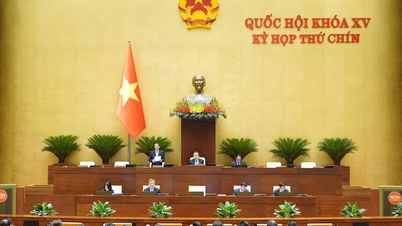


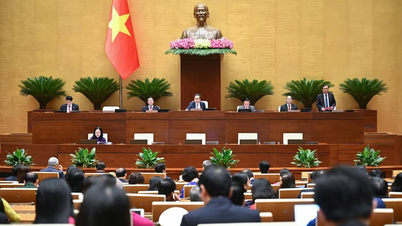

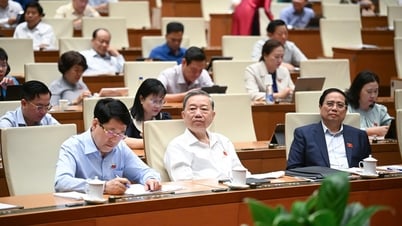





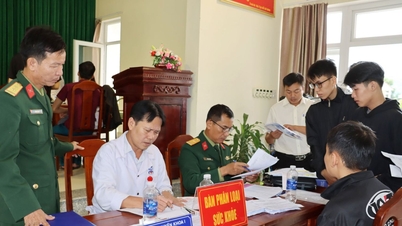




















































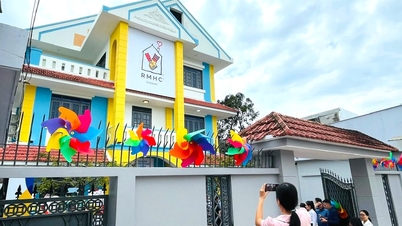

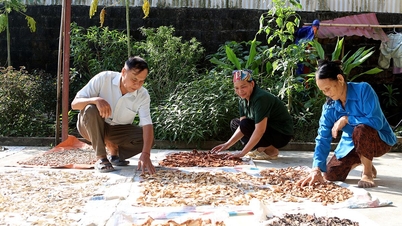


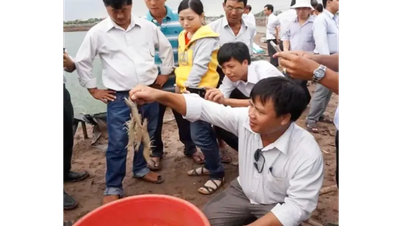















Σχόλιο (0)